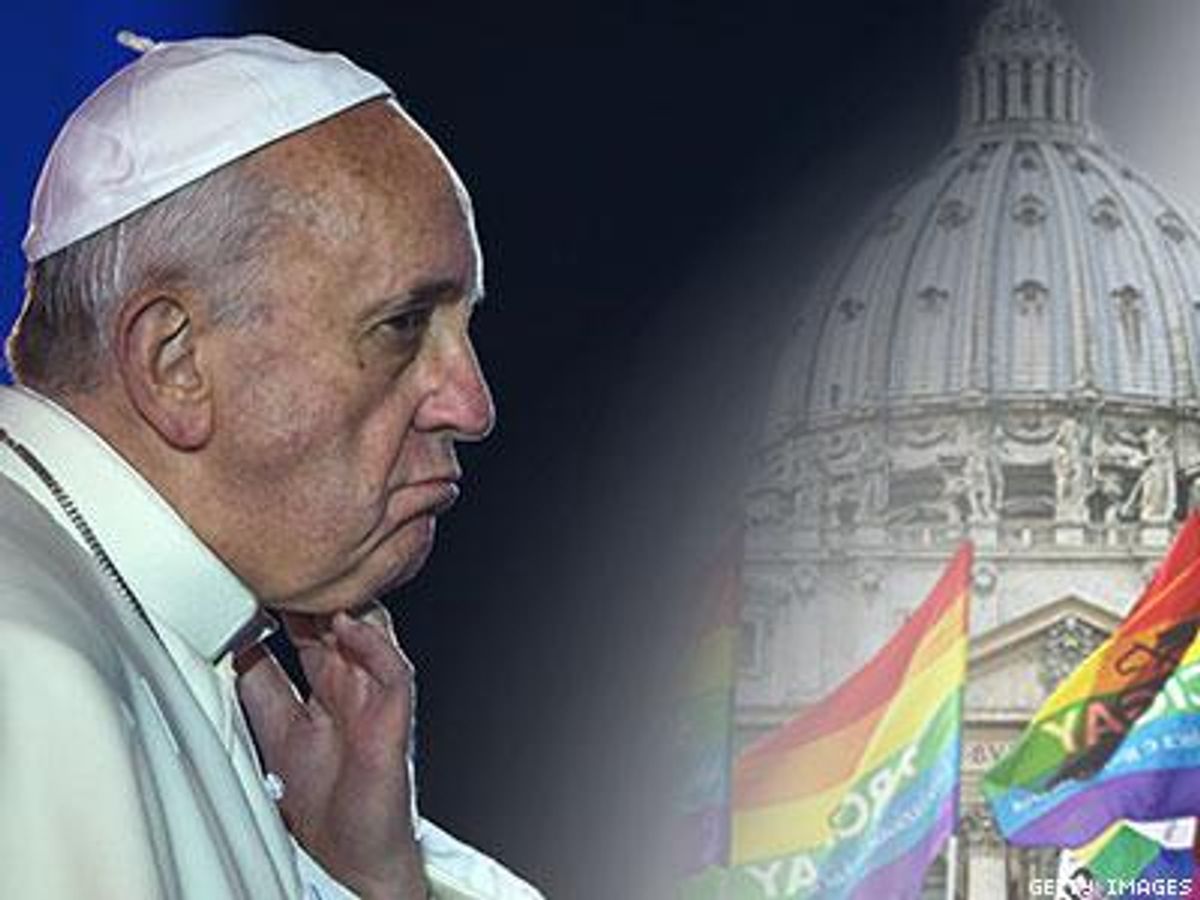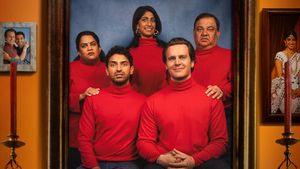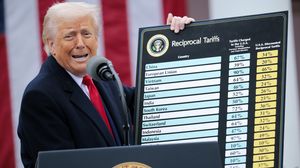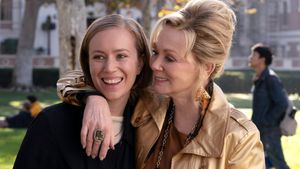Ever since Pope Francis was elected in 2013, I've been asked, "What do you think of this pope?" It's a simple question that doesn't have a very simple answer.
On one hand, my opinion is one of an outsider, as I'm a Lutheran and not a Catholic. However, as a person of deep faith who graduated from seminary, I've seen the profound impact the pope has on people around the globe -- the hope he can provide, the dreams he can dash -- all with a simple statement. Everyone says that his "tone" is different. Publications as diverse as Time, the National Catholic Reporter, and even The Advocate have named Pope Francis the Person of the Year.
His comment "Who am I to judge?" has been the phrase many people are likely to connect to his papacy. However, until everyday, pew-sitting Catholics feel the lived and tangible impact of Francis's statement, his words have little meaning.
Since Pope Francis uttered his famous "Who am I to judge?" comment in 2013, New Ways Ministry, a prominent Catholic LGBT organization, has recorded at least 43 known instances of workers in Catholic institutions, including schools, food pantries, and churches, who have been fired, forced to resign, had offers rescinded, or had their jobs threatened because they're LGBT or LGBT-affirming. Just last month in Philadelphia -- the host city of the upcoming World Meeting of Families and site of next month's papal visit -- Margie Winters, a beloved veteran teacher at a Catholic school, was added to that list of those who were fired when it became know that she was in a relationship with another woman. Also in Philadelphia, three alumni of Archbishop Wood High School are facing trial for a brutal attack on a gay couple that left one man's jaw wired shut. These incidents, as different as they are, are indicative of the ongoing problems the Roman Catholic hierarchy has with LGBT people.
We have to wonder if Pope Francis and Roman Catholic leaders will spend any of their time in the United States talking about the lives, commitments, and faithfulness of LGBT people. Will they speak up against the oppression of those who are LGBT? Will they call for a church that advocates for the full dignity and humanity of each person?
One can always hope, but there are reasons to be skeptical.
The focal event for Francis's visit is the World Meeting of Families, a regularly occurring event designed by Pope John Paul II "to explore the critical role the family plays in society and to give families opportunities to talk about the challenges and blessings that all families have." A quick look at the breakout sessions seems to indicate LGBT people will be frequently spoken about but never heard from. Breakout sessions include titles like "Redefining Marriage: Is It Really Whatever We Say It Is?" and "Free to be Faithful? Religious Freedom and the Family." The only openly gay workshop presenter is Ron Belgau, a celibate gay Catholic who will advocate, along with his mother, that celibacy is the only option for LGB people.
Perhaps more important is the history of rhetoric about LGBT people. The consistent message coming from the Roman Catholic hierarchy has been that any advances in the acceptance of LGBT people is considered an "outside attack" on the Roman Catholic Church. The "outside attack" message is as dangerous as it is untrue. The reality is that millions of faithful Roman Catholics are LGBT people and allies. Among Catholics in America, support for marriage equality is around 60 percent across the board, according to the Public Religion Research Institute. These LGBT people and allies are not attacking the church from the outside but rather staying with their faith in the face of rhetorical, vocational, and sometimes even physical attacks. And sadly, too many have been chased away from their faith, deciding that the trauma of such dehumanizing rhetoric is too much to bear.
Beyond hoping and praying that Pope Francis or any other member of the hierarchy says something neutral to positive about LGBT people, what else can we do?
On July 28, GLAAD and DignityUSA joined 28 other LGBT, Catholic, and Hispanic organizations in an open letter, calling on Pope Francis to sit down and listen to LGBT people and their families. The pope's words have the power to change hearts and minds, and it is important that he hears directly from the people he is speaking about.
Beyond the letter, GLAAD is helping reporters dig past the "Who am I to judge?" comment into the history of LGBT people in the Catholic Church. And we are supporting LGBT families who are making a pilgrimage to Philadelphia to ensure that they are visible in the midst of all the talk of marriage and family from a Catholic perspective.
Contrary to popular belief, the heart of the Catholic Church is not just the bishops, cardinals, or even the pope. The heart of the church is the people of God, living out their everyday lives. They act in faith, following God's call to love their neighbor as themselves. Whether the neighbor is a loved one, an LGBT advocate, or even a stranger, loving involves listening and caring. It is through sharing personal stories that acceptance is fostered. The change is slow, but acceptance on an interpersonal level can lead to big changes -- even in an institution like the Roman Catholic Church.
ROSS MURRAY is GLAAD's director of programs, focusing on global issues and the U.S. South. Ross works with individuals and organizations that are bringing LGBT equality to their own environments through their advocacy or their mere presence. He specializes in relationship between religion and LGBT people. In 2014, he was named one of Mashable's 10 LGBT-Rights Activists to Follow on Twitter. Ross is also founder and director of the Naming Project, a faith-based camp for LGBT youth and their allies. The Naming Project has been the subject of the award-winning film Camp Out and was featured in the controversial "Pray the Gay Away?" episode of Our America With Lisa Ling.


















































































